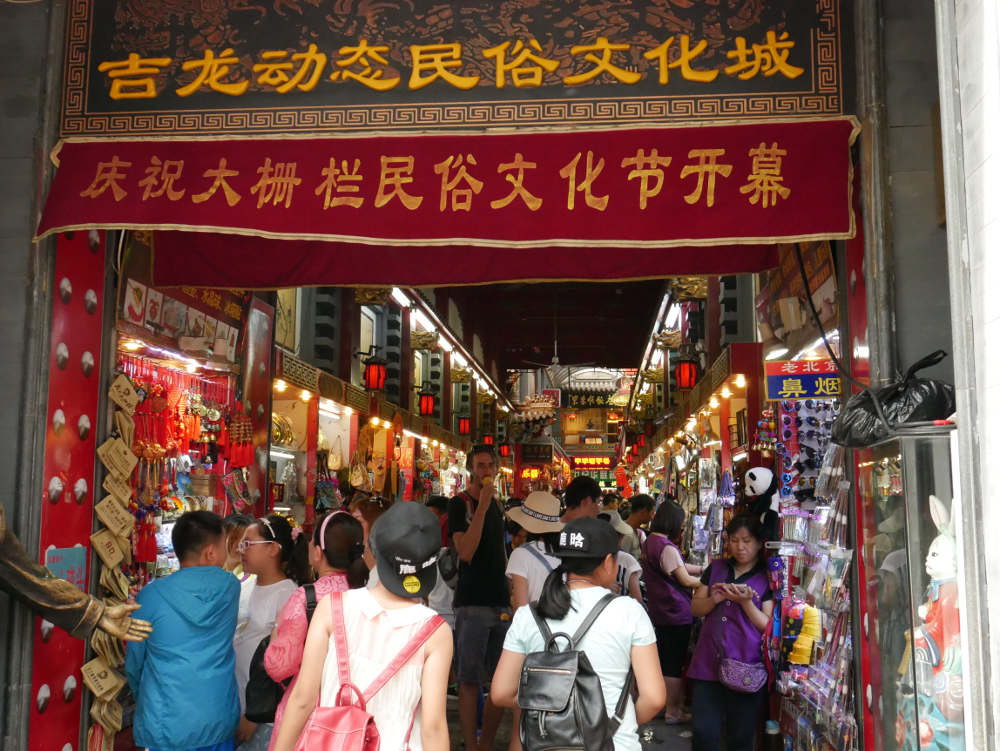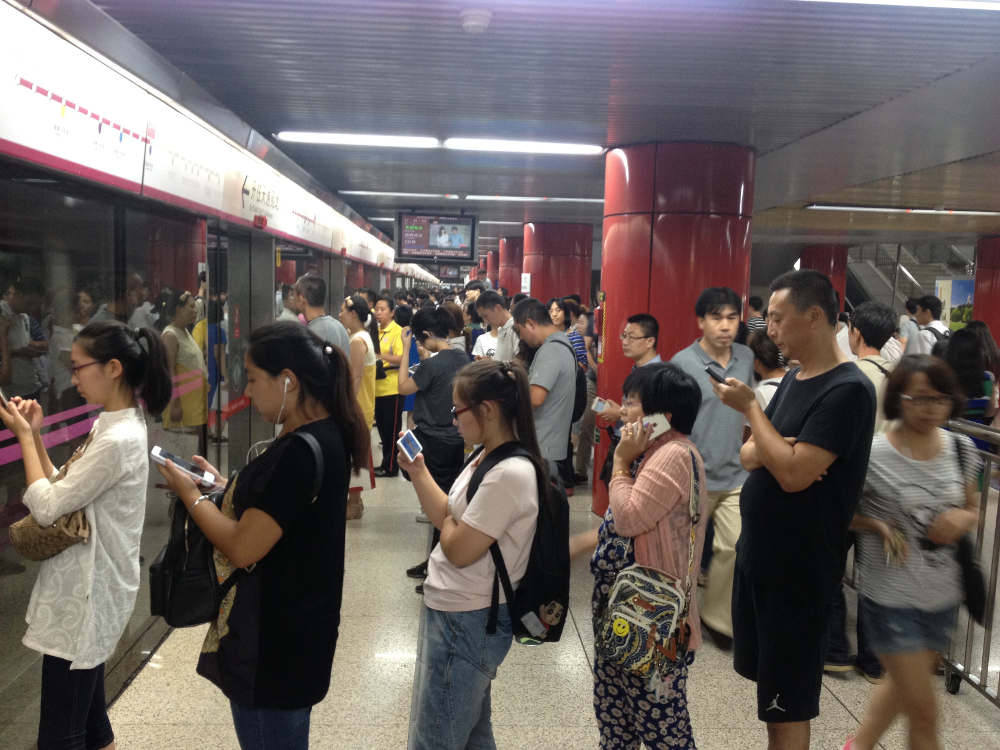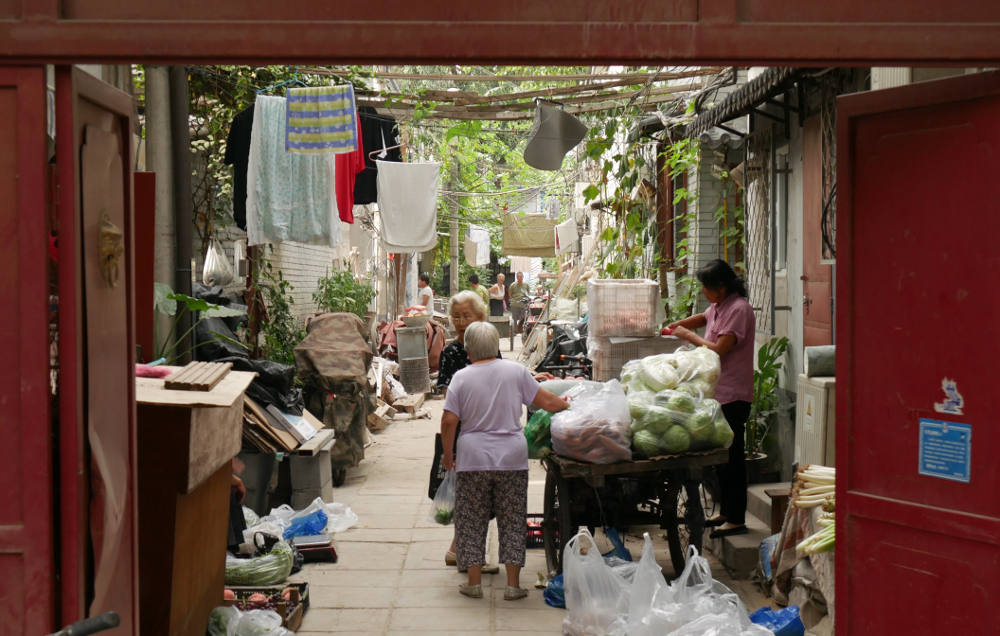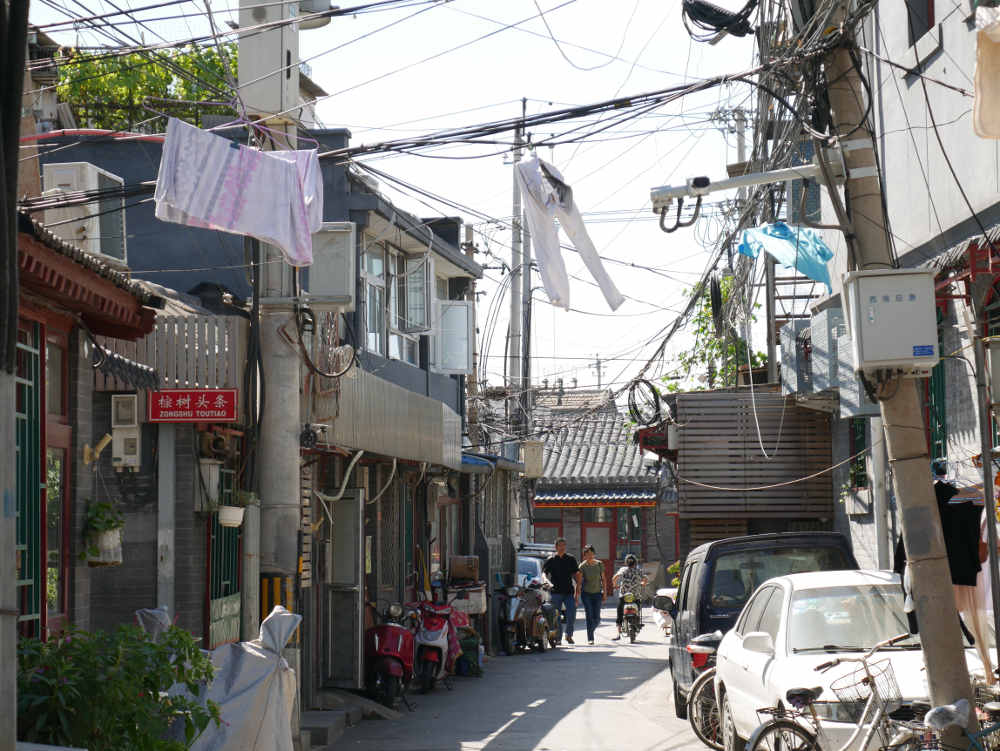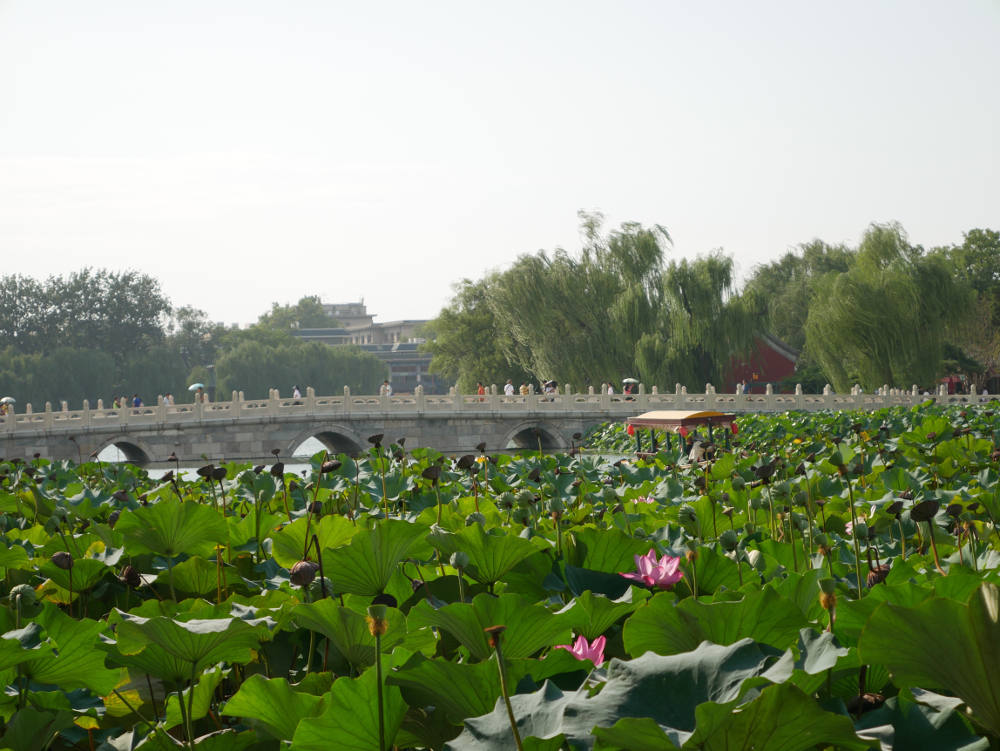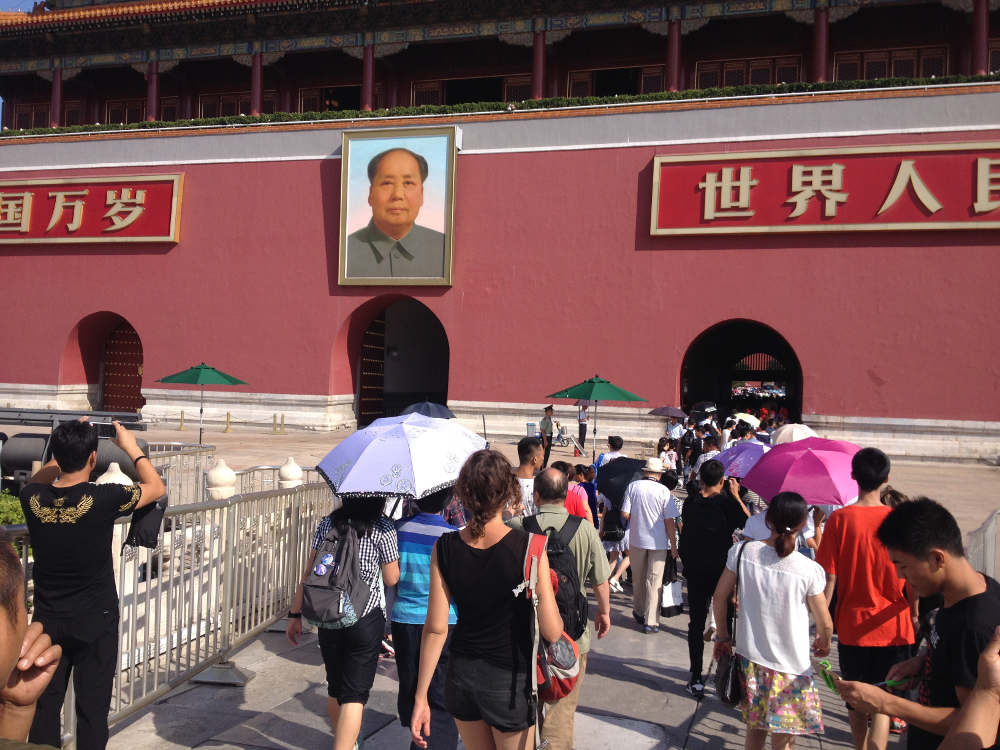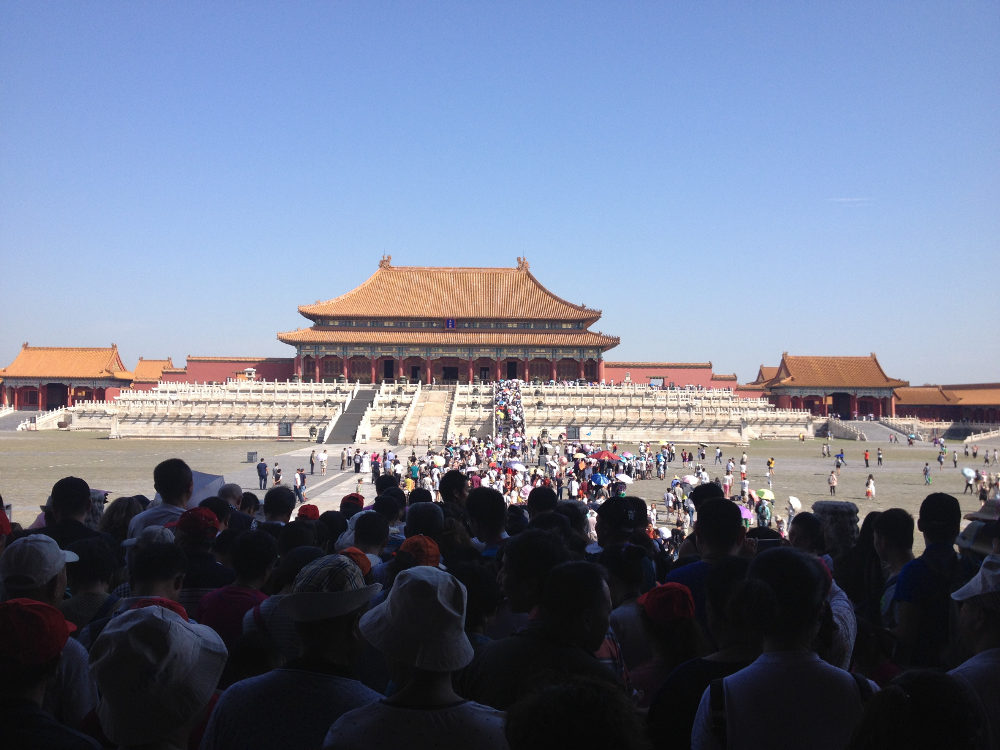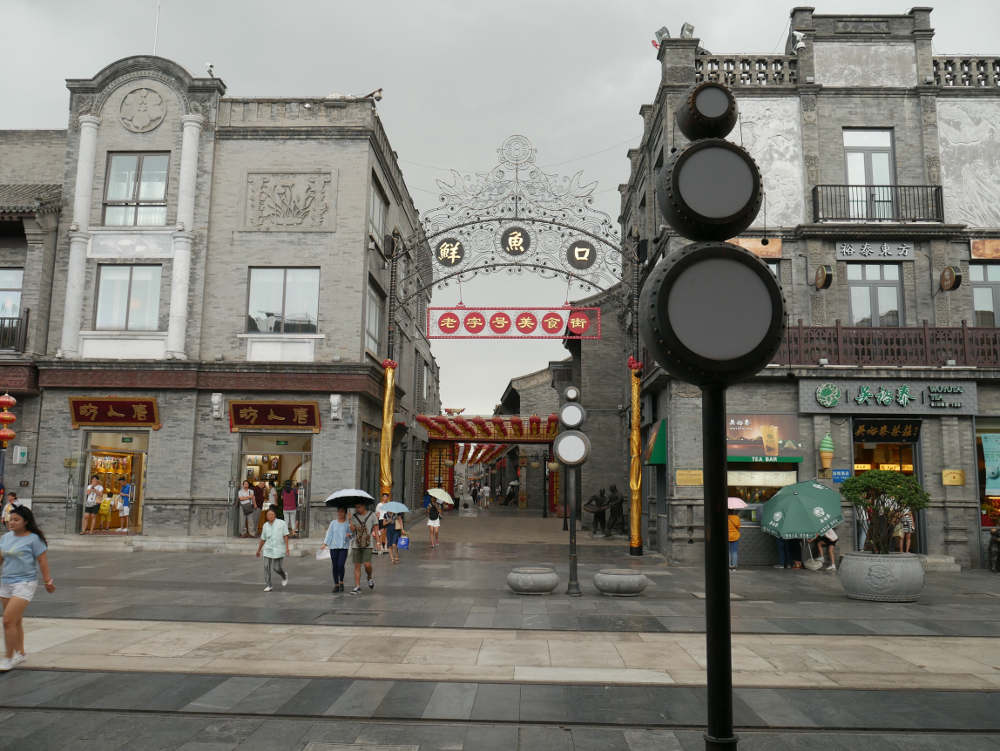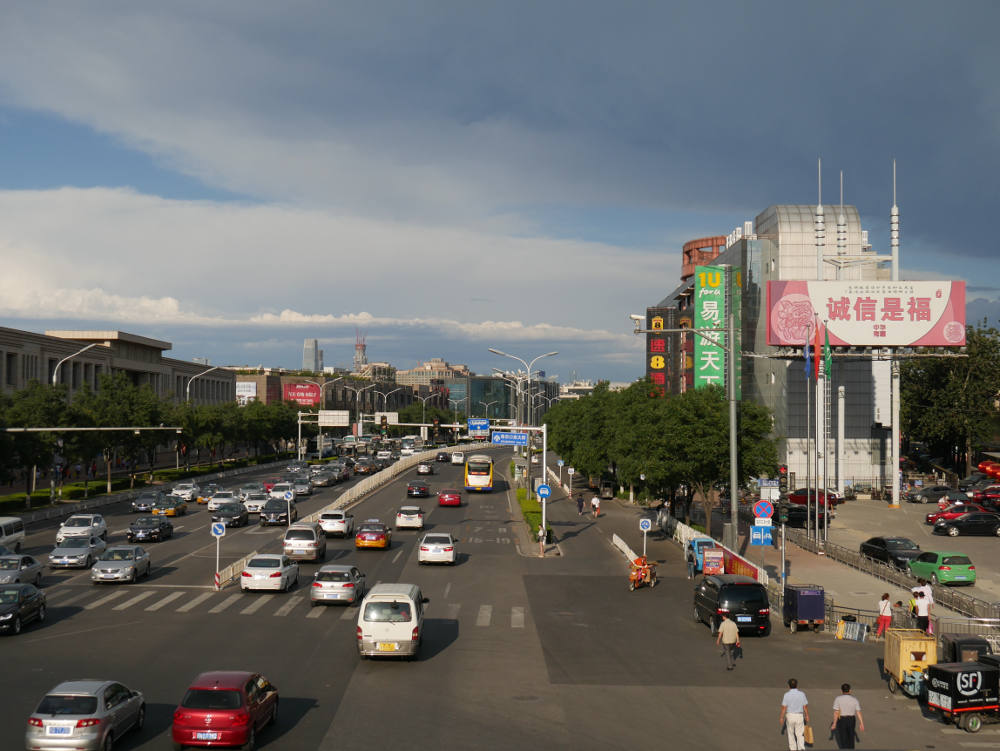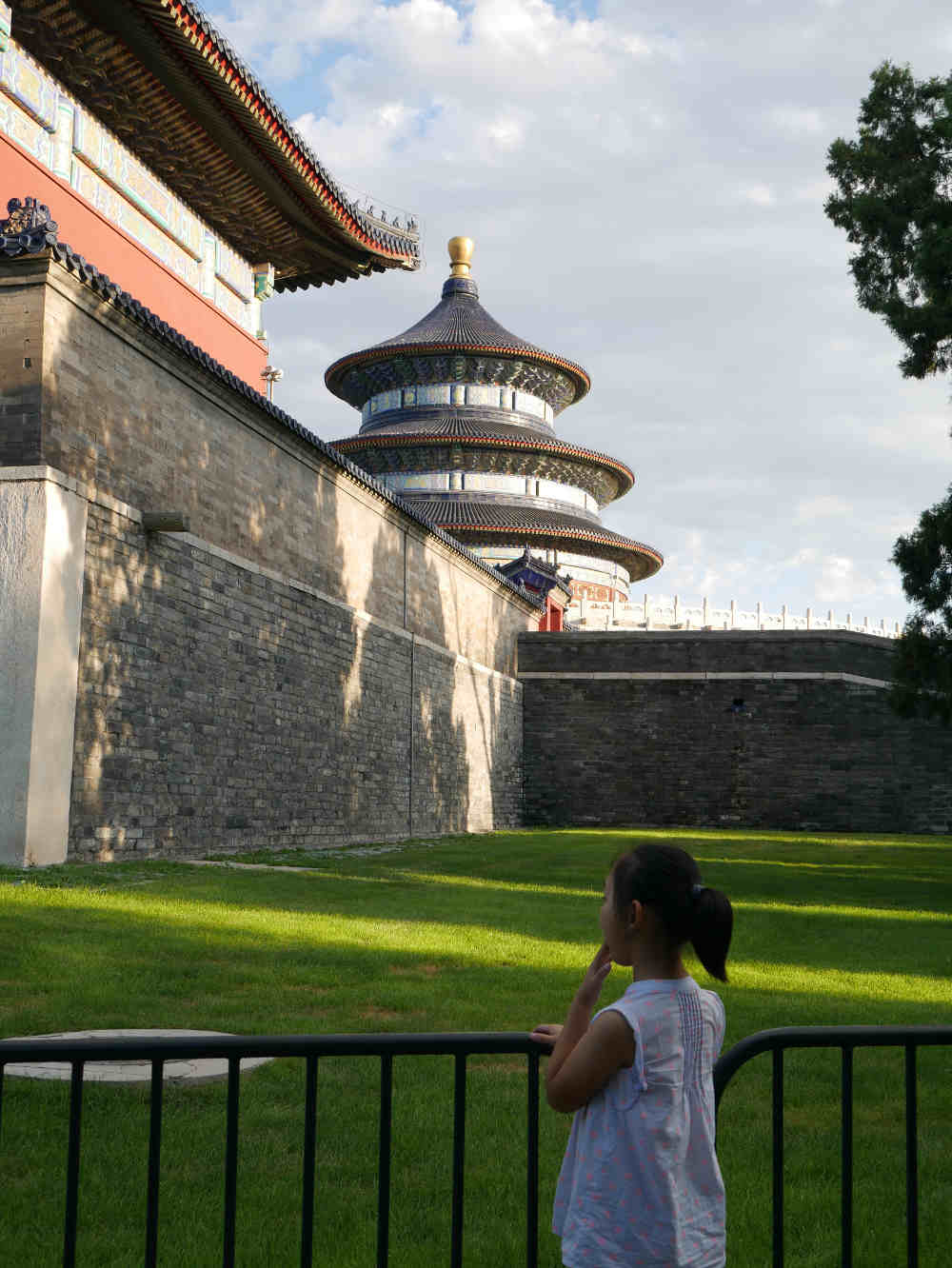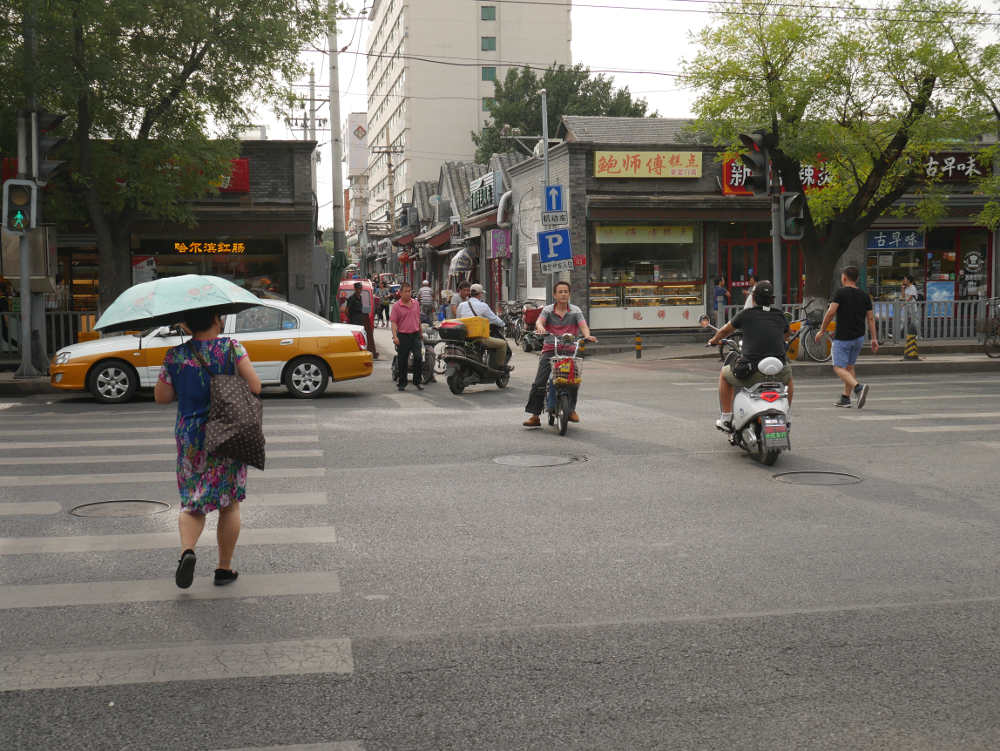Beijing, September 2016
We arrived in Beijing with no place to sleep and it was already pretty late, so we decided to try our luck with a downtown hostel. When we were organizing our Chinese visa application in Ulaanbaatar, we had made a 2 month long fake itinerary with copies from hotel reservations across China, as well as fake plane tickets in and out of Beijing. The Chinese government is a little anal about controlling incoming foreigners, but in this case it could actually help us find a place to sleep. Of course we had already long canceled our reservations, but at least we had an address. Unfortunately, the place was packed and every other hostel or hotel we could find was fully booked. Eventually we managed to make an online reservation for a nearby hotel, but the address turned out wrong. Figuring we wouldn’t be able to pitch our tent on Tiananmen Square, we kept looking and after a lot of walking and asking we were lucky enough to find the hotel. By then we were pretty much exhausted and not too pleased to hear them say: “we’re sorry, we do not have a reservation in your name”. We kept our cool and after some pressing and a quick phone call with the chef, it all turned out fine. Tired, but relieved, we jumped into bed well after midnight.
The next morning we ran into a somewhat odd and colorful character in the hotel lobby. He introduced himself as Captain China and appeared to be a man of many talents, or so he claimed. He was a tourist travel agent specialist as well as a standup comedian. He immediately combined both talents when he uttered the phrase: “ah, you’re from Holland (Jeroen) and you’re from Germany (Linda)? Yeah, I’ve visited both countries many times, I rééaaally like Holland…” while silently smirking at Linda. It probably was one of his better jokes, as it went quickly downhill from there, but in between the humor we had a nice conversation in a little cafe across the street. To our surprise they didn’t serve tea, but they did have a selection of homebrew IPA beer. It felt a little early at 10:00 am in the morning, but that didn’t seem to bother the Captain. When we tried to steer the conversation towards some more politically sensitive topics relating to freedom of speech, religion, movement and assembly, we got a frank answer: “I might not like it, but what can I do about it?”. It probably sums it up quite nicely. The government is very suppressive and intolerant to any regime criticism, so you don’t want to stick your head out too much. Many people we met in China had a similar response. They would shrug and point out that China is still a developing country. They probably didn’t reveal the back of their tongues to us, but their reactions were are a lot more satisfying than what we call the “Russian Reflex”, which is to ignore any politically loaded question and to simply start talking about a whole new topic.
We said our goodbyes to Captain China, but not before we became WeChat friends, the Chinese version of a Facebook type messenger app (Facebook is blocked in China, as well as Google and many other services). From there we were on our own to explore the city of Beijing. Not an easy feat to accomplish, but the Captain recommended us to visit the Temple of Heaven, so that’s where we went.
First something to eat though. The strange thing in China is, that your mind plays tricks on you. Every shop has a name sign in Chinese, so it feels like every shop is a Chinese restaurant, because of course that’s how it’s like back home. Luckily for us, in Beijing it’s not even that far from the truth, there’s food everywhere. One of our favorite street foods was melon on a stick, which is exactly what it sounds like. Kind of like the healthy and delicious alternative to ice cream!
As we were biting away at our melon in the Temple of Heaven park, we were sending messages back and forth with our second WeChat friend: Sabine, a German girl living in Beijing and working as a German teacher. We got in contact through Couchsurfing and she kindly took the time to show us around town and gave us her insights on living in China as a foreigner. Strangely enough, none of the foreigners we met in China seemed to enjoy the country so much to consider building their lives there.
It’s different for the Chinese themselves of course. One of which we met is Owen, a journalist working for the New York Times. He wouldn’t tell that to anyone in China though, because the New York Times is blocked in China. No enviable lifestyle, living a double life, without earning much of a wage. So by the time he would reach his thirties he would ditch his ideals, quit journalism and find a decent paying job. In all the criticism he has on the current political situation and all the criticism he can’t even voice (he wouldn’t discuss what he called the three T’s: Tiananmen square, Taiwan and Tibet), he was also agonizing whether he wasn’t ignoring all the positive developments that are going on in China. There are of course many, the economic growth and increase in wealth of the middle class in China over the past 30 years is unparalleled, and it is one of the reasons why most Chinese are happy with the political status quo and not willing to demand more personal rights. We can only assume it must feel like a double-edged sword for many.
By this time, Mike had sent us a message on Couchsurfing that he would be able to host us. Like Owen, Mike is working in journalism. Where the Chinese Owen is working for an American paper, the American Mike is working for the (English language state-run) Chinese paper: China Daily. Self-censorship is a daily routine, but that’s how the media in China works. Mike showed us around town and allowed us to use his place to organize our visa for Pakistan, for which we had to send our passports to the Pakistan embassy in Berlin. Not the most reassuring country to be without passport, but there is no other way to get the visa and there is currently no other land route from China to India. Through Tibet would be an option, but the government doesn’t allow foreigners to enter Tibet without a permit and a personal guide, unfortunately too costly for us. Mike would soon leave China after having lived in Beijing for two years, just like a Brazilian colleague of his. His colleague organized a farewell party with a bunch of Brazilian diplomat friends, who all told us they couldn’t see themselves staying in China either.
Dan and Katie, a couple and two more American expats, shared similar thoughts. We met them through BeWelcome, a non-profit platform that resembles Couchsurfing. They gave us a little book: “Hiking around Beijing” as well as some great advice on where we could go to explore the Great Wall of China. We planned to be gone for two days, but we ended up staying out for a whole week…
